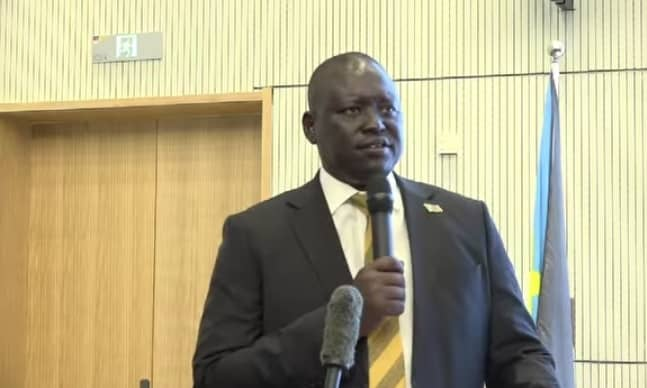Our Terms & Conditions | Our Privacy Policy
SSRA Commissioner seeks development partners’ hands on revenue support – The City Review South Sudan
By Aguok Chok
The Commissioner General of the South Sudan Revenue Authority (SSRA), Simon Akuei Deng, has appealed to embassies, United Nations agencies, and non-governmental organizations (NGOs) to support the country’s efforts in domestic revenue collection.
Speaking recently during a Technical Workshop on Immunities and Privileges held at the Bank of South Sudan in Juba, Mr. Akuei emphasized on the need for collaborative tax compliance measures. The event was attended by representatives of diplomatic missions, international agencies, and development partners operating in South Sudan.
“We appeal for cooperation in tax compliance,” said the Commissioner General. “If we work together, we can ensure that the laws are respected while continuing to support humanitarian and development goals.”
Mr. Akuei acknowledged that many international agreements signed by South Sudan provide various tax exemptions. These include the Status of Forces Agreement (SOFA), the Vienna Convention, the EPISAA (Exemption of Privileges for International and Specialized Agencies Agreement), and provisions under donor-funded development projects.
“These agreements are well known and respected. We understand the importance of honoring international obligations. However, there are still areas where compliance can be improved without violating these agreements,” he said.
The Commissioner General highlighted two major challenges currently affecting the country’s ability to collect revenues effectively.
First, he mentioned the issue of Pay-As-You-Earn (PAYE) or Personal Income Tax (PIT) from individuals employed within the United Nations and other exempt organizations. While these agencies enjoy exemption statuses, the individuals working under their contracts are often not covered by the same exemptions.
“We face difficulties collecting PIT from people employed by the UN system,” Mr. Akuei explained. “This creates a gap in revenue that is rightfully due to the government under our tax laws.”
Second, he pointed to a growing concern over contractors and service providers working with UN agencies and exempt organizations. According to Mr. Akuei, these entities often fail to meet their tax obligations, citing the exemption status of their employers as justification.
“These contractors and service providers are not exempt,” he said. “They operate within the South Sudanese economy and are subject to local tax laws. We urge all parties to ensure that these businesses comply with the applicable tax obligations.”
Mr. Akuei also proposed that UN agencies implement withholding tax systems on payments made to contractors and suppliers. This, he said, would help improve compliance and reduce the burden on the revenue authority.
“By introducing withholding tax systems, we can enhance transparency and make sure taxes are paid at the source,” he said. “We believe this can be done in line with international standards and national legislation.”
The SSRA chief concluded by calling for continued dialogue, transparency, and a spirit of partnership between the government, diplomatic missions, and international organizations.
“Revenue collection is not just a government responsibility it is a national duty,” Mr. Akuei said. “We need your support to build a better South Sudan.”
“We face difficulties collecting PIT from people employed by the UN system,” said Simon Akuei Deng, Commissioner General of the South Sudan Revenue Authority (SSRA)
Daily Newsletter
[ad_1]
Images are for reference only.Images and contents gathered automatic from google or 3rd party sources.All rights on the images and contents are with their legal original owners.
[ad_2]



Comments are closed.